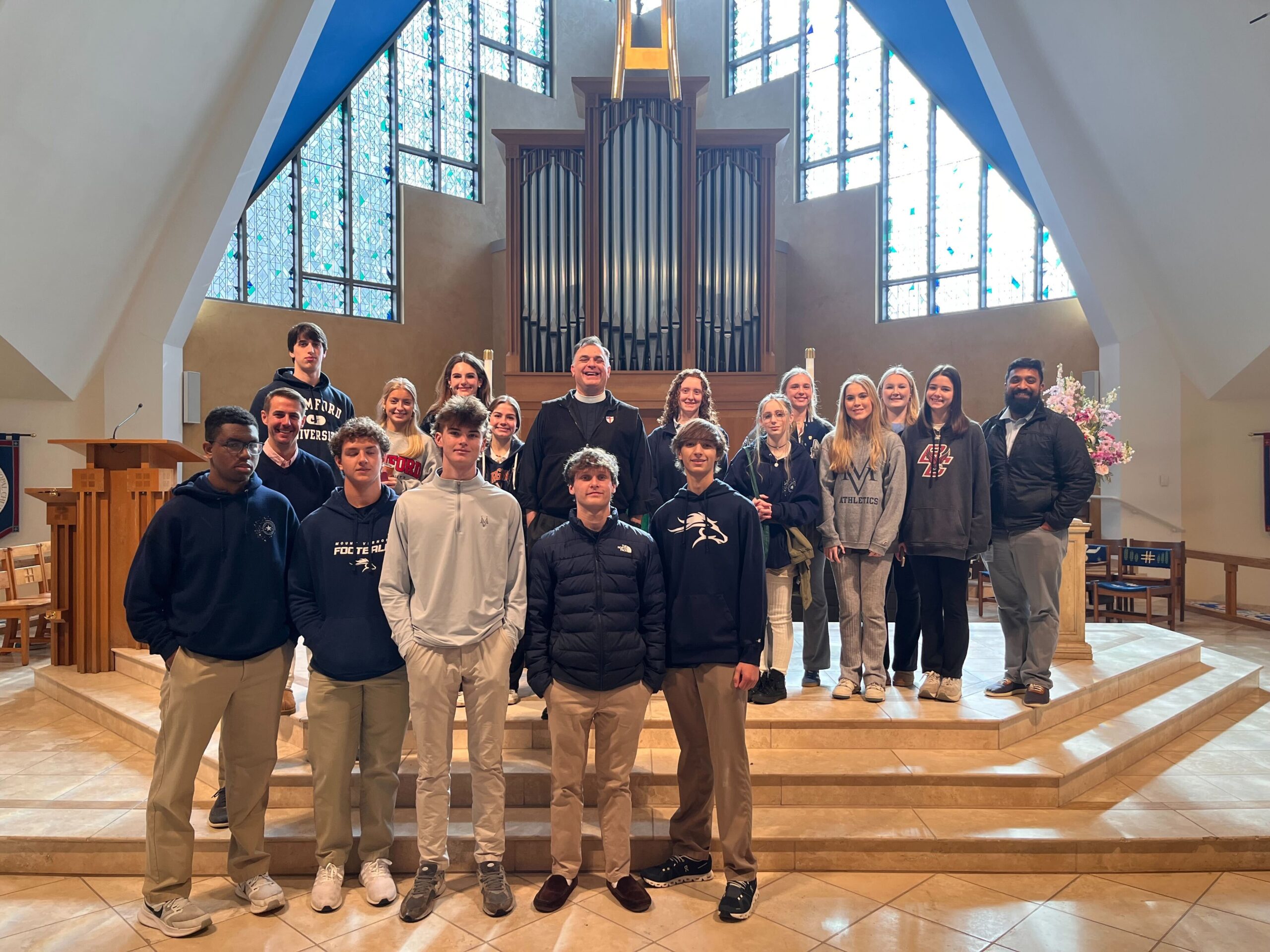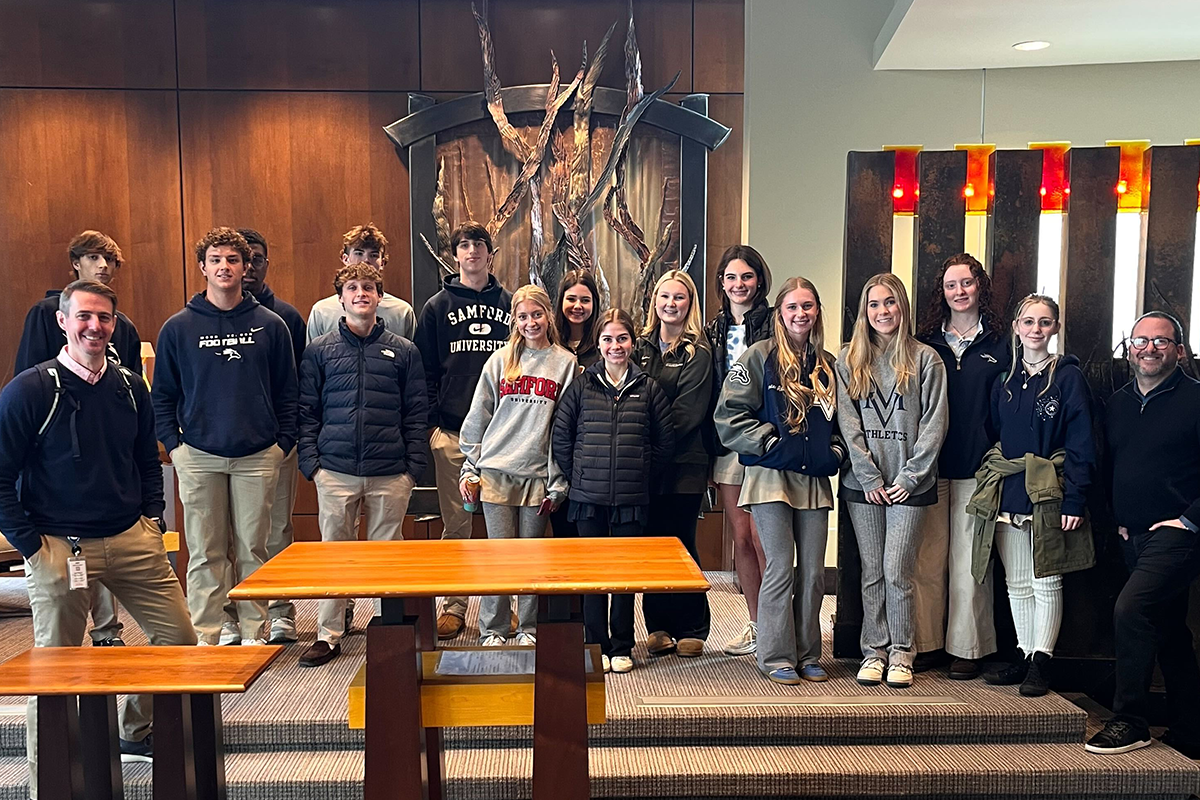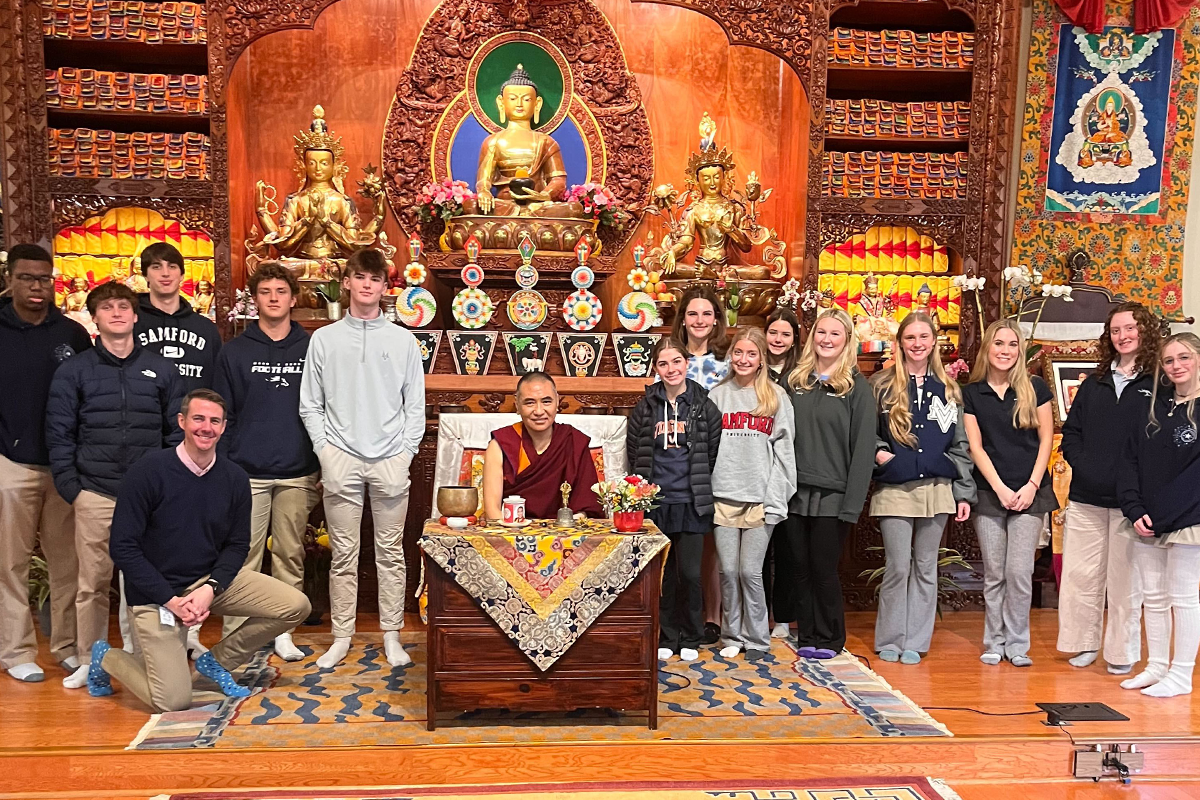At Mount Vernon, we believe that expanding our knowledge and understanding of the world is essential to fostering a culture of empathy, curiosity, and global readiness. This belief is at the heart of the Upper School’s World Religions course, Believe It or Not, designed to engage students in an immersive exploration of different faith traditions. Through site visits, conversations with religious leaders, and deep discussions, students gain insight into how people across the world find meaning, purpose, and connection through faith.
Recently, students in Josh Amerson’s class embarked on an experiential journey, visiting Temple Sinai Synagogue, Holy Innocents’ Episcopal Church, and the Drepung Loseling Buddhist Monastery. These visits provided a firsthand look at sacred spaces and the significance of religious ceremonies, offering students the opportunity to engage in thoughtful dialogue with faith leaders. By listening to how different religious traditions interpret life, purpose, and the human experience, students began to form meaningful connections between faith, culture, and identity.
Senior Amelia Katz reflects on her experience, “Visiting various places of worship after studying traditions of different faiths in class was truly eye-opening. It’s one thing to hear about different beliefs, but stepping into these sacred spaces and hearing from faith leaders made everything feel more real and personal. I gained a deeper appreciation for the values and traditions that shape different communities, and it challenged me to think more critically about my own perspectives. It was a powerful reminder that while our beliefs may differ, the search for meaning and connection is something we all share.”
Rooted in Mount Vernon’s commitment to developing critical thinkers and empathetic leaders, Believe It or Not is structured around five major world religions—Judaism, Christianity, Islam, Hinduism, and Buddhism. The course invites students to explore each tradition’s historical foundations, key beliefs and practices, and its vision for the future. Through interactive discussions, group research, and immersive site visits, students move beyond textbooks, engaging with faith as a living and evolving experience.
A key component of the course is the Interfaith Chapel Experience, designed and led by students as a culminating project. This initiative encourages students to weave together diverse spiritual elements—including religious music, sacred texts, prayer traditions, and reflection activities—into a service that both honors religious diversity and highlights shared human values. Whether selecting scripture, leading meditation, or curating a musical selection, each student plays an integral role in creating an inclusive and meaningful experience for their peers.
On February 19, the class will take the lead in the Upper School Chapel, sharing their reflections and insights from this journey. Through this experience, they hope to inspire the Mount Vernon community to engage in more meaningful, respectful, and welcoming discussions about faith—both within their own traditions and across diverse belief systems.
At a time when the world often seems divided by differences, this course seeks to empower students with the tools to foster unity through understanding. By developing humility, empathy, and respect for different perspectives, these young learners are not just studying religion; they are cultivating a mindset of openness and a lifelong commitment to seeking knowledge and connection across cultures.
As a school that values curiosity, dialogue, and innovation, Mount Vernon continues to create opportunities for students to think deeply and engage meaningfully with the world around them. Believe It or Not is more than just a religion class—it is an invitation to expand perspectives, build bridges, and embrace the diversity of human thought and belief.



